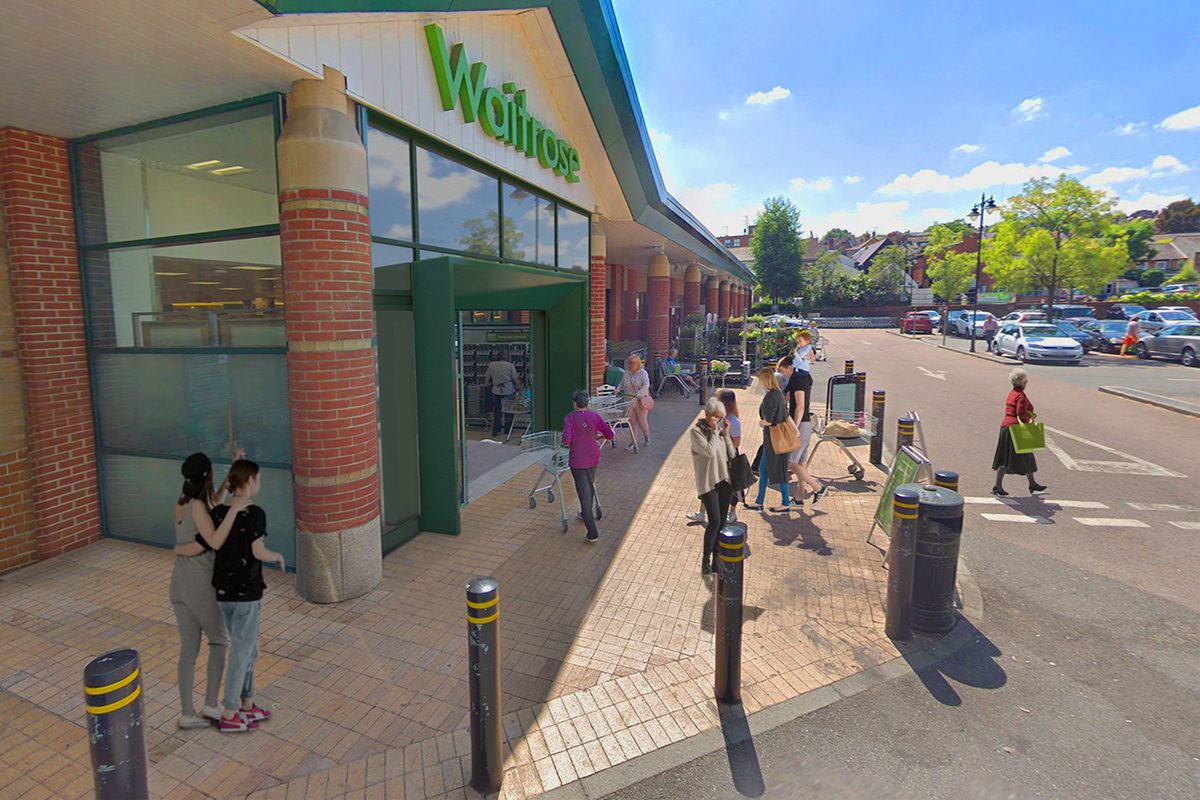
Waitrose & Partners is to introduce an ‘invisible door’ that has the potential to save British retailers a combined £1.5bn per year by reducing their energy bills.
Wirth Research’s pioneering AirDoor™ concept prevents warm air being lost from the store during colder temperatures and cold air being lost during warmer temperatures as customers enter and leave, meaning doors are often left open for long periods. It performs particularly well in instances of extreme temperature or pressure differences as well as strong winds.
The AirDoor provides an archway that sits outside the store, located around the frame of the existing entrance. It is designed to help tackle the estimated £1.5bn annual cost to British retailers caused by avoidable energy loss at the door*.
It incorporates an array of sensors to detect airflow in both directions, which is then counteracted by an opposing, self-generating wind. The result is an invisible, active ‘barrier’, preventing unwanted outside air flowing into the building and inside air escaping. There is minimal disruption to the customer and it negates the need for revolving doors or lobbies.
It is scheduled to launch at the supermarket’s Berkhamsted store later this year and, if successful, there are plans to roll the AirDoor out to more Waitrose shops.
The AirDoor was co-funded by Innovate UK – a government scheme that rewards game-changing innovation with global potential. Innovate UK is part of UK Research and Innovation, set up to drive productivity and economic growth by supporting businesses to develop and realise the potential of new ideas.
Jim Burnett, Senior Manager, Technical Services for Waitrose & Partners, said:
“We are always looking to find innovative ways to reduce our impact on the environment and while we know we still have a lot of work to do, the potential of the AirDoor could be key in helping us make our shops even more sustainable in the future.”
Nick Wirth, President and founder of Wirth Research and a former Formula 1 team owner, said:
“AirDoor is a response to a global and increasingly urgent issue – and there is no direct competition. It represents a solution that improves the customer experience, delivers annual energy savings and reduces carbon emissions – exemplifying Waitrose as a standard-bearer in the supermarket industry when it comes to ‘green’ thinking. The UK high street is facing ever-greater competition from online retailers, but AirDoor combats this by incorporating the energy-saving advantages of an actual door without creating a physical barrier to the customer.”
*Wirth Research used its own sophisticated, high-resolution CFD (Computational Fluid Dynamics) model to measure supermarket energy loss caused by wind infiltration, based on weather, door opening data and building dimensions for three different-sized stores. By correlating this against gas consumption data, we were able to show that each store spent between £5k-£10k to compensate for energy loss. Wirth Research estimates that if a £5k loss was applied to all of Britain’s 299,415 retailers (source: independent economics research consultancy Retail Economics) it would cost almost £1.5bn. These figures exclude hotels, warehouses, distribution centres, hospitals or any other public or commercial buildings, which would significantly raise the overall cost.







